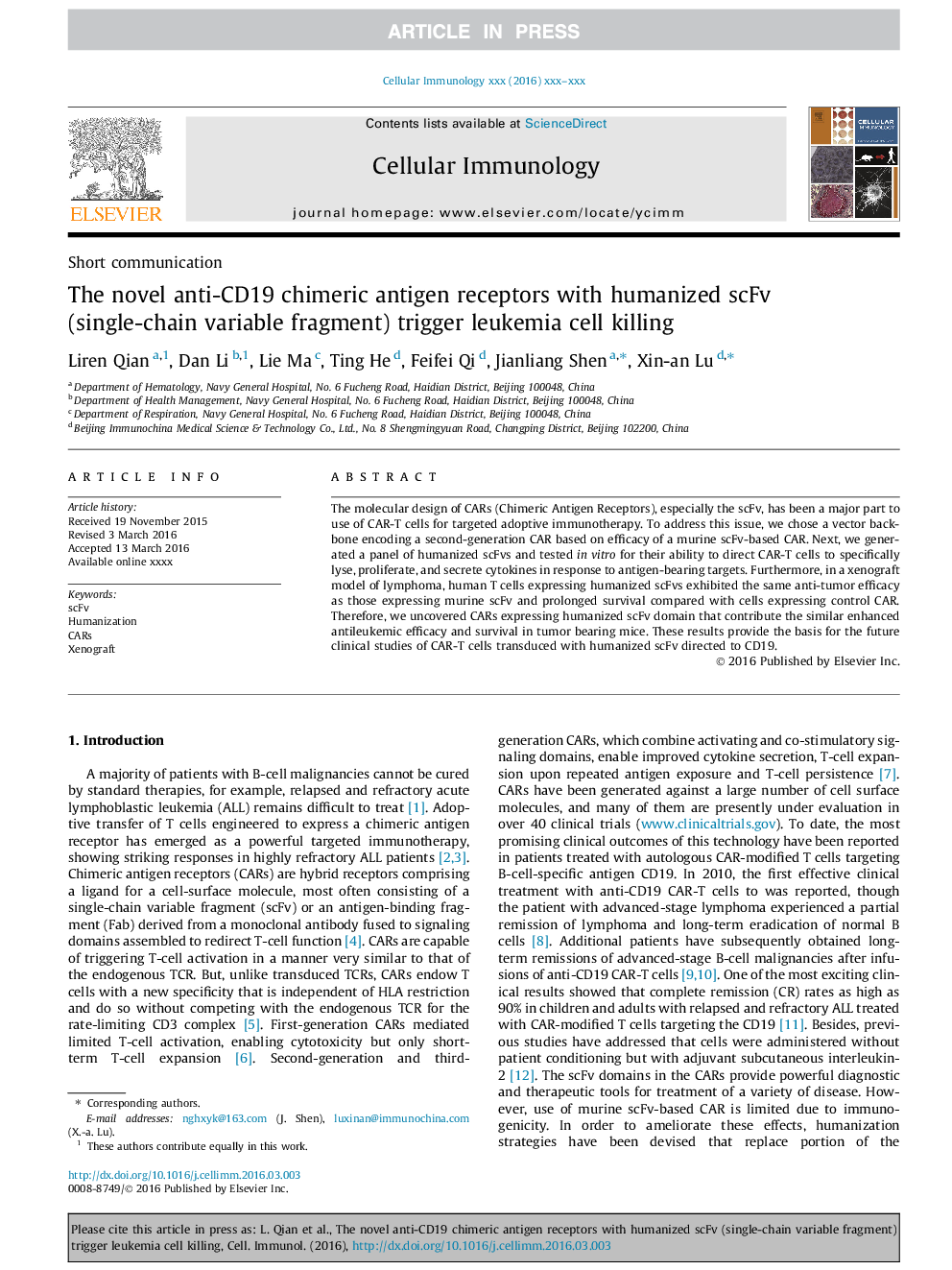| Article ID | Journal | Published Year | Pages | File Type |
|---|---|---|---|---|
| 8463684 | Cellular Immunology | 2016 | 6 Pages |
Abstract
The molecular design of CARs (Chimeric Antigen Receptors), especially the scFv, has been a major part to use of CAR-T cells for targeted adoptive immunotherapy. To address this issue, we chose a vector backbone encoding a second-generation CAR based on efficacy of a murine scFv-based CAR. Next, we generated a panel of humanized scFvs and tested in vitro for their ability to direct CAR-T cells to specifically lyse, proliferate, and secrete cytokines in response to antigen-bearing targets. Furthermore, in a xenograft model of lymphoma, human T cells expressing humanized scFvs exhibited the same anti-tumor efficacy as those expressing murine scFv and prolonged survival compared with cells expressing control CAR. Therefore, we uncovered CARs expressing humanized scFv domain that contribute the similar enhanced antileukemic efficacy and survival in tumor bearing mice. These results provide the basis for the future clinical studies of CAR-T cells transduced with humanized scFv directed to CD19.
Keywords
Related Topics
Life Sciences
Biochemistry, Genetics and Molecular Biology
Cell Biology
Authors
Liren Qian, Dan Li, Lie Ma, Ting He, Feifei Qi, Jianliang Shen, Xin-an Lu,
